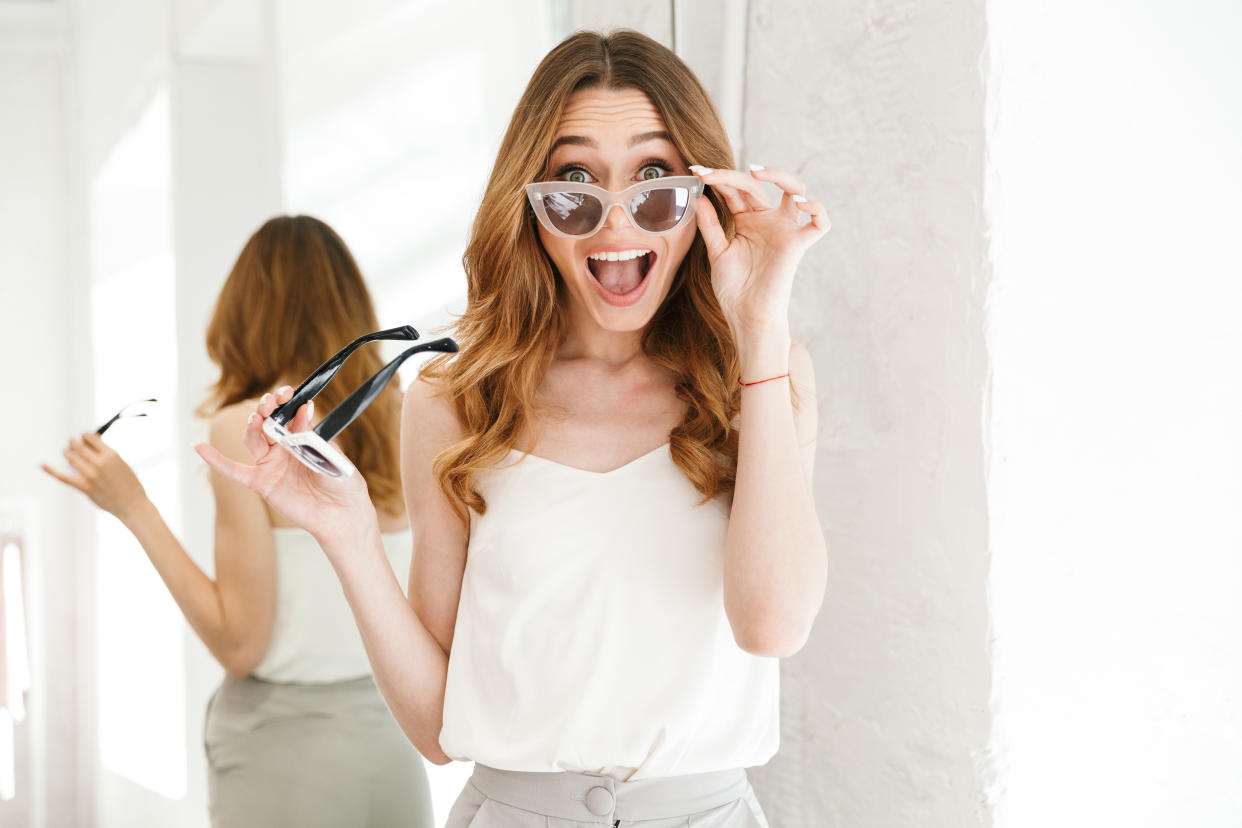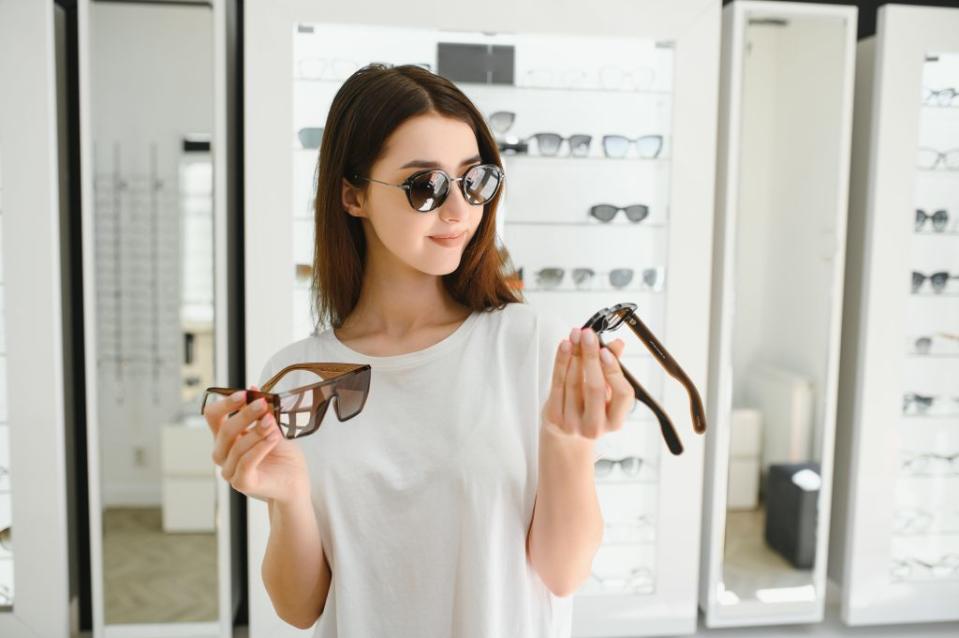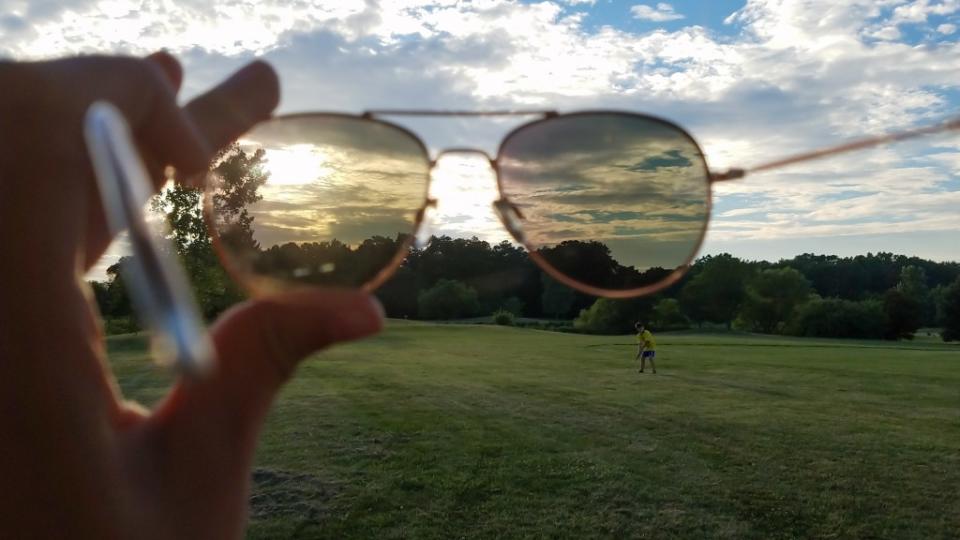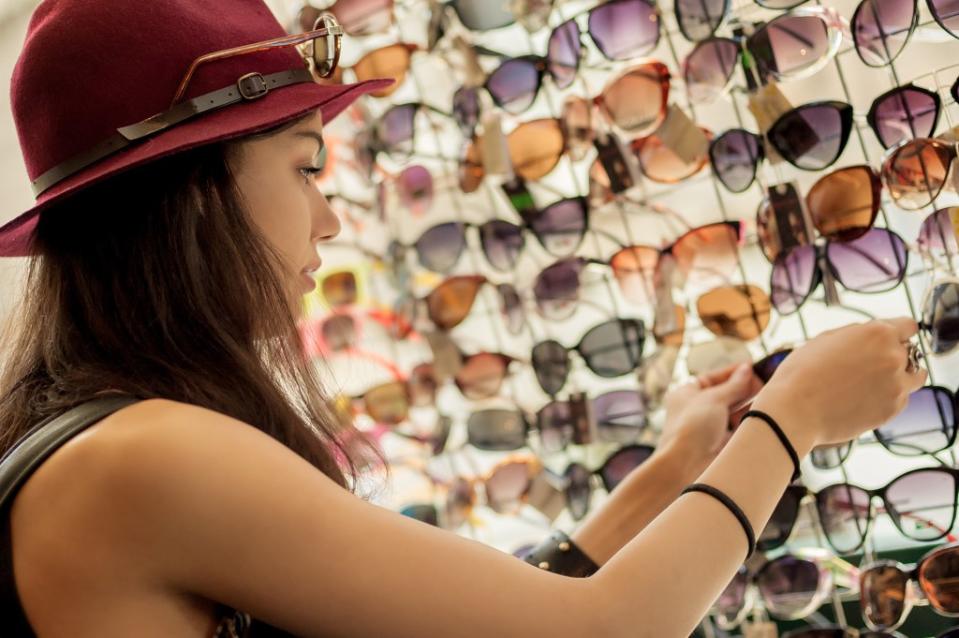How to know if your sunglasses are actually protecting your eyes

Don’t fall for shady sunglasses.
Eye experts shared their tips for how to pick sunglasses that will protect your eyes from the sun’s damaging rays — and why they’re so important, Verywell Health reported.

The benefits of sunglasses
Wearing sunglasses does more than keep your eyes safe from UVA and UVB rays, which can increase your chances of getting eye diseases like cataracts, dry eyes and cancer.
Sunglasses also protect the eyes from wind and dust and can shield the delicate skin around the eyes too.
Sunglasses with polarized lenses, meaning they reduce reflected glares from water snow and glass, are especially protective.
They help to “reduce the risk of developing wrinkles, fine lines and even skin cancer,” Michelle Holmes, OD, optometrist at Pacific Neuroscience Institute in Santa Monica, CA, told the health outlet.
Bryce St. Clair, assistant professor in the Department of Ophthalmology at the Wilmer Eye Institute, Johns Hopkins Medicine added that “wearing sunglasses helps block UV rays and wind from stimulating pinguecula growth.”
A pinguecula is a relatively common noncancerous growth of the conjunctiva, the thin tissue that covers the whites of the eyes, according to Mount Sinai’s website.
St. Clair said sunglasses also protect against macular degeneration, eyelid skin cancer and cataracts.

What to look out for when buying sunglasses
UV Protection
Some sunglasses may appear to shield your eyes because they have tinted lenses, but that doesn’t ensure they have adequate UV protection.
The experts say to make sure the glasses provide 100% protection against UVA and UVB rays, Holmes said.
Certified glasses should say something like “UV 400” or “100% UV protection,” but if you’re afraid they might be fake, you can research the brand online.
Polarized lenses
As mentioned earlier, sunglasses with polarized lenses could eliminate glares from things around you, like the glare of a hood from an incoming car.
“This can reduce eyestrain and enhance visibility and comfort during activities like driving, skiing and boating,” Holmes said.
The sunglasses are typically a bit more expensive.

Fit and frame
If sunglasses don’t fit well, you may not properly be protecting your eyes from the sun.
If they don’t fit properly, you may be less likely to want to wear them.
“You’ll be less likely to keep on a frame that is uncomfortable to wear,” Holmes said.
The experts noted that small sunglasses, while they may be in fashion, might not completely cover your eyes from rays.

Material
Experts recommend people choose durable frames and lenses. Lenses made of Rivex, polycarbonate, glass, titanium or stainless steel are the strongest, St. Clair explained, adding that polycarbonate are the least likely to shatter.
“Be cautious when buying these lenses because if they shatter, they can cause irreversible vision damage from the chipped pieces,” St. Clair warned.
“You can definitely find a pair that will work well and protect your eyes for cheap. However, be careful with the freebies! They may not provide the full spectrum of protection,” St. Clair added.

